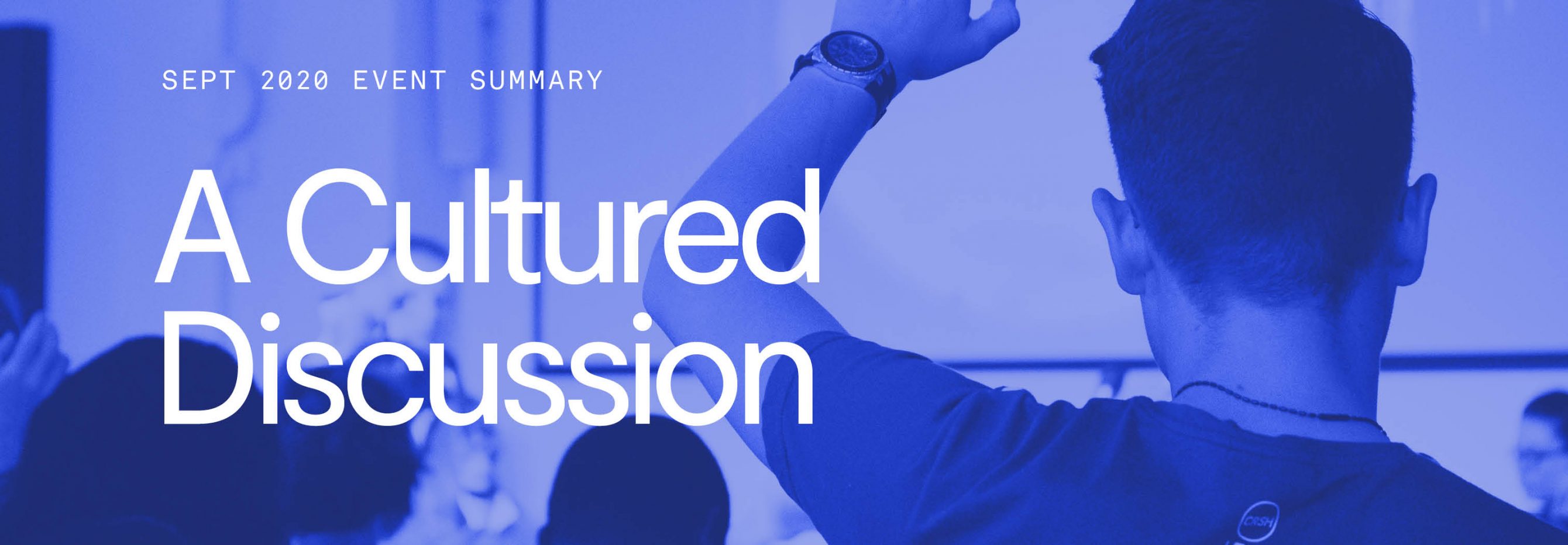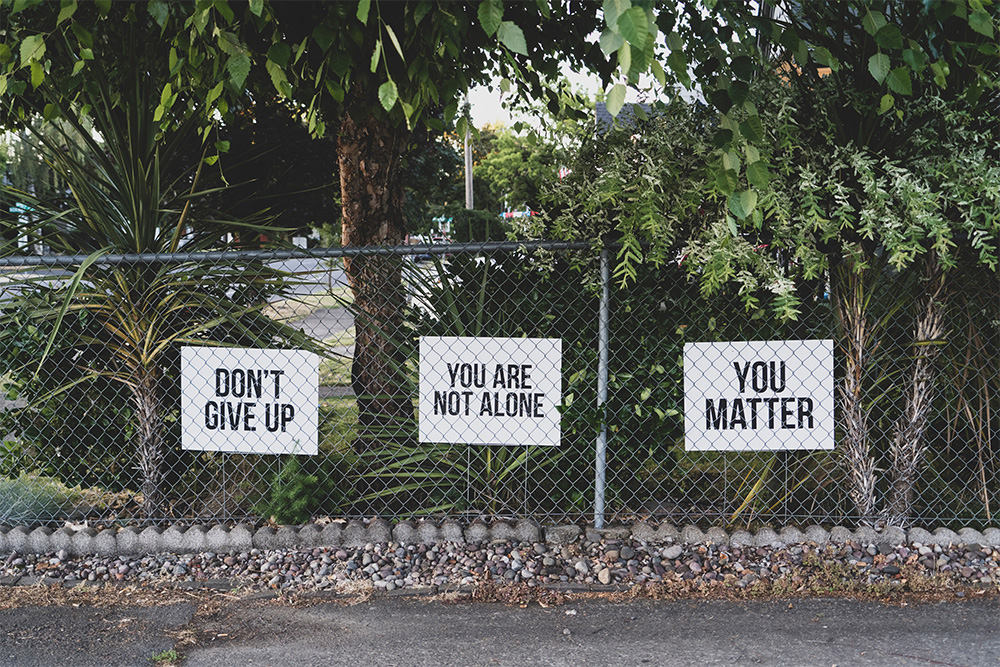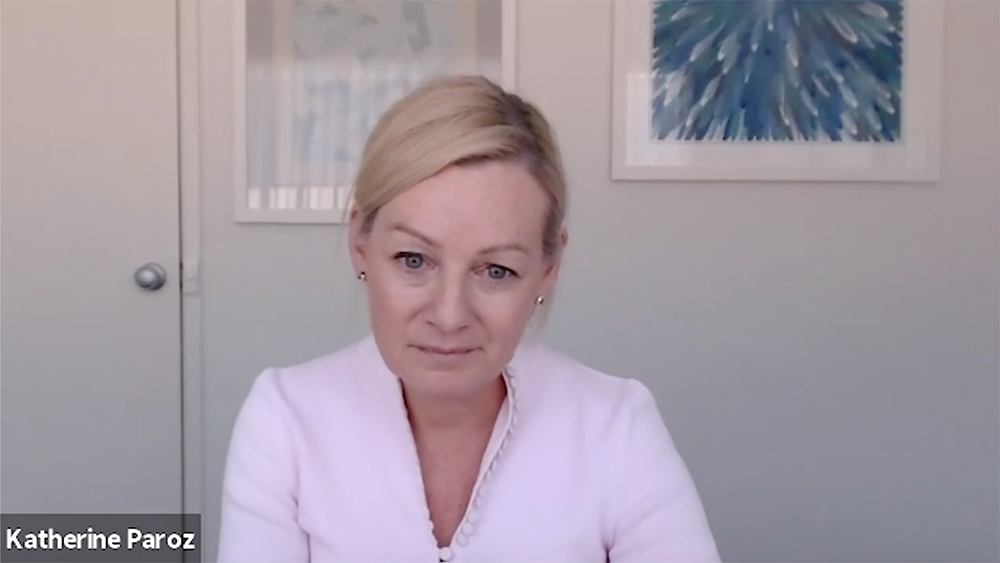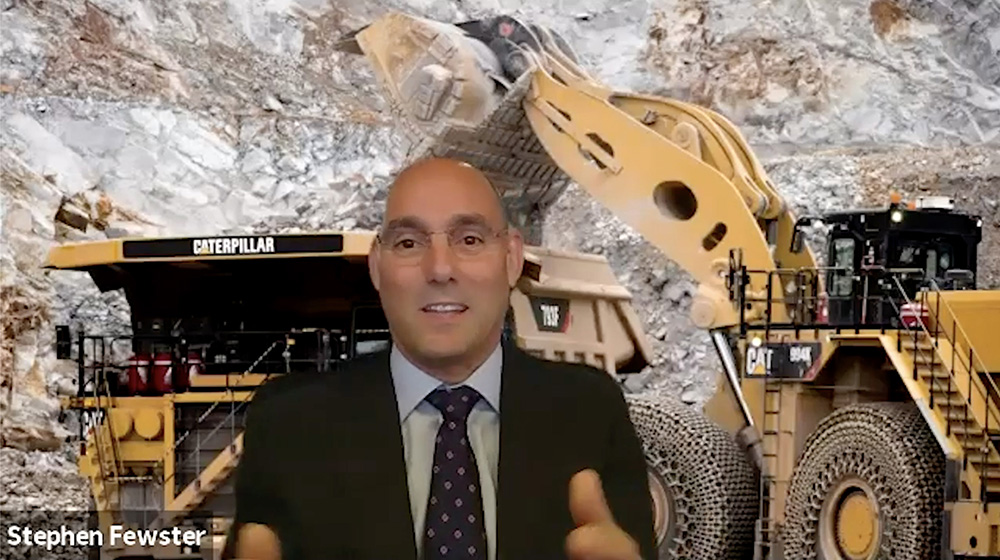Company Culture: How do we maintain it in a time of disruption?

Our latest ‘A Cultured Discussion’ event featured some of Australia’s greatest business leaders including Mike Schneider, Katherine Paroz and Stephen Fewster. Throughout the discussion, they showered our attendees with golden nuggets of information, surrounding the topic of maintaining a strong company culture in a time of disruption.
Did you not get a chance to (virtually) attend the event due to a packed-out diary? Or maybe you did attend but were too enthralled in the conversation to take notes?
Well, don’t worry yourself too much, because we have plucked out all of the key takeaways and summarised them for you, right here, on this page.
As a collective, Interchange felt that it was necessary to cover this topic as people and organisations alike were crying out for this information during such a trying time. This pandemic has turned into the ultra-marathon and the longer we run, the weaker our endurance becomes. Our seemingly robust company cultures begin to waver under the crushing weight of ambiguity, rapid shifts in operating models and remote workforces.
But how can we maintain, reinforce and leverage our company culture during this time of disruption? Well, here’s what the experts had to say.
Eliminate Ambiguity
Even in the simplest times, communication within an organisation needs to be on point. In not-so-simple times, however, it is absolutely imperative.
The pandemic has caused all sorts of fear and uncertainty within organisations. When the bad news first struck, businesses were closing down left, right and centre. We heard about hours being reduced, jobs being cut, employees everywhere were in a state of panic.
For many businesses, their first line of duty was to formulate a plan and then aim to ease the panic within the workforce by informing the employees of the impacts and changes to come.

Bunnings Managing Director, Mike Schneider comments on their organisational wide communication technique during the pandemic:
“When the first announcements came out back in March, we had a crisis committee meeting and the very next thing we did was cut a video and post it straight on Workplace. Within hours, there were hundreds of comments from our team, with plenty of questions and concerns, but a strong acknowledgement that knowing what was going on from a Bunnings point of view was a very reassuring thing for them.” – Mike Schneider, Bunnings Managing Director.
Communicating from the top down isn’t the only direction that the dialogue needs to stem from during these trying times. What makes a strong, unwavering organisation is communication that loops. From the top, to the bottom and then back up again.
Organisations need to create a company culture where employees feel comfortable to speak up about how they are feeling and what support they need. No one knows more about what an individual needs than they do, so allow them to make that decision for themselves and then support them in whatever way you can.

Mike Schneider, Bunnings Managing Director, discussing the importance of communication at the ‘A Cultured Discussion’ event.
We know that getting employees to open up about their vulnerabilities is easier said than done – especially in male-dominated industries. But two-way communication is an integral part of maintaining a strong culture during this time. So, it’s important to take the necessary steps to normalise and encourage open discussion.
“We listened hard to our team during the fear phase and the really good safety measures we have in place came from our store teams because they’re the ones living in that environment. We’ve been working really hard over the last few months to find the right rhythm for that communication so that there is constant engagement.” – Mike Schneider, Bunnings Managing Director.
Social Connection
When we hear about the ways in which people are struggling during this time of disruption, the most common answer is…social isolation. Even the most introverted people tend to crave a little social interaction every now and then. It’s part of human nature and more often than not, it’s what keeps our company’s culture alive and well.
Throughout our time working within dispersed teams, it’s important (now more than ever) to maintain our casual interactions with co-workers. Especially the non-work-related ones.
Think back to the times when you would walk into the office kitchen and find Brody standing there to greet you, with a beaming smile and his usual flat white in hand. You’d chat about the footy game that happened over the weekend and then bond over your mutual disappointment that your team lost. You’d end the conversation with a pat on the back and a ‘have a good day mate’.

Brody with his usual flat white.
It’s these little incidental conversations that we took for granted all of those months ago that actually helped us feel connected to our community, to our organisations and helped us feel joy throughout the workday.
Now that we are without them, it has become gleamingly obvious how much we relied on them. Even more so for those who live alone, which is the experience that Katherine Paroz witnesses quite frequently within CSIRO.
“Through this time, we have learned the depth of our diversity and the different needs that our people have, which is a great strength of our culture. We have more than our fair share of people who live alone and so we have tried very hard to engage those people by doing things like coffee roulette to try and connect and engage with those people”. – Katherine Paroz, CSIRO Executive Director – People.
Organising online social events or learning sessions that cater to the interests and culture of the organisation can be a great way to bring the workforce together and keep them connected – says Katherine Paroz.
“We have really ramped up our cadence on communication, having regular meetings, talking about issues and sharing our experiences – having some fun as well. What really resonates in our culture is the deep science, so we have been running sessions, largely about the pandemic because our people really want to understand the deep science around the vaccine and how it’s working and the technology that’s being used. So, we have been running these sessions that people can just come to and hear about the work that’s being done. I think that has helped to develop an enormous sense of pride, even for the people who don’t work in that field. It has also been their way of engaging with the pandemic. – Katherine Paroz, CSIRO Executive Director – People.

Katherine Paroz, Executive Director – People, speaking at the ‘A Cultured Discussion’ event.
Preparation is key
Another prominent theme taken from the discussion was to keep your foot on the culture pedal throughout the good times as well as the bad.
As stated by WesTrac CFO, Stephen Fewster, it’s the prior culture work that determines whether an organisation sinks or swims in the turbulent sea of disruption. If you continue to maintain and actively work to improve your company culture when business is running smoothly, then you will be well and truly prepared for when situations out of your control take a turn for the worse.
“Our behaviours through the last six months were very much aligned with everything that we have been saying over the last two years. So, from my perspective, we have actually done a really good job of strengthening the culture and it’s not, ‘here’s something that we say we do when times are good’, but when there is a challenge in front of us, we still behave in exactly the same way. So, I think for us, it has been a really good opportunity to strengthen and prove that the culture will withstand the good times as well as some of those challenging times.” – Stephen Fewster, WesTrac Chief Financial Officer.
Purpose equals passion
One of the most important elements for a successful business is a well-defined purpose. That is, why the organisation exists and why they do what they do.
A clearly demonstrated purpose will attract the right employees to the company from the get-go. People who strongly believe in what the company does and why they do it. It is this deep-seeded passion that shapes the culture and drives the organisation to push through times of disruption.
“The passion that our people have for the business and their desire for the business to be successful has certainly been one of the key contributors for our ability to continue to operate and serve our customers through the last 6 months.” – Stephen Fewster, WesTrac Chief Financial Officer.

Stephen Fewster, WesTrac Chief Financial Officer, speaking at the ‘A Cultured Discussion’ event.
Mike and Katherine could also well and truly attest to that sentiment.
“What we needed to tackle was a move from fear to unity and have a real sense of purpose behind that. We galvanised the team around a focus on being open and being available for the community to access products. Whether it was to access a home office or home classroom or just stay occupied through what we’ve been going through.” – Mike Schneider, Bunnings Managing Director.
“CSIRO’s culture is dedicated and driven by the greater good. That’s really real and tangible for us. People become scientists and are attracted to working at an organisation like ours because they really want to do something for others, and they want to change the world. That has been an enormous boost to our resilience and our ability to manage our people through this. It’s a real strength of our culture.” – Katherine Paroz, CSIRO, Executive Director – People.
To go one step further in support of the organisational purpose, a company should have a well-defined set of values that are embedded and incorporated throughout absolutely everything that they do. All too often, organisations have a set of values that simply fade into the background and become nothing more than a poster on the wall.
With strong values comes passion, direction and unity. If an organisation’s culture is strongly centred around their core values, the shift into more challenging times will become less of a chaotic scramble and more like, ‘this is what we have been training for’.

Gabrielle Harris, Founder and Managing Director of Interchange, hosting the ‘A Cultured Discussion’ event.
It was a cultured discussion indeed
So, there we have it folks. We asked, and the experts have answered. In order to maintain, reinforce and then leverage our company culture during times of disruption, we must:
- Eliminate ambiguity by communicating quickly and thoroughly.
- Create a company culture where the workforce can speak up and be open about how they feel or what they need.
- Stay connected socially. Make the time to catch up with colleagues for non-work related discussions or activities.
- Constantly work on strengthening your culture, in the good times as well as the bad.
- Clearly define and demonstrate your organisation’s purpose and values.
Stay tuned for our next upcoming A Cultured Discussion event.
Need help fostering a positive company culture in your organisation? Here at The Interchange Group, we are leaders in fostering work environments built on creativity and culture. Please get in touch to start transforming your company’s culture today.